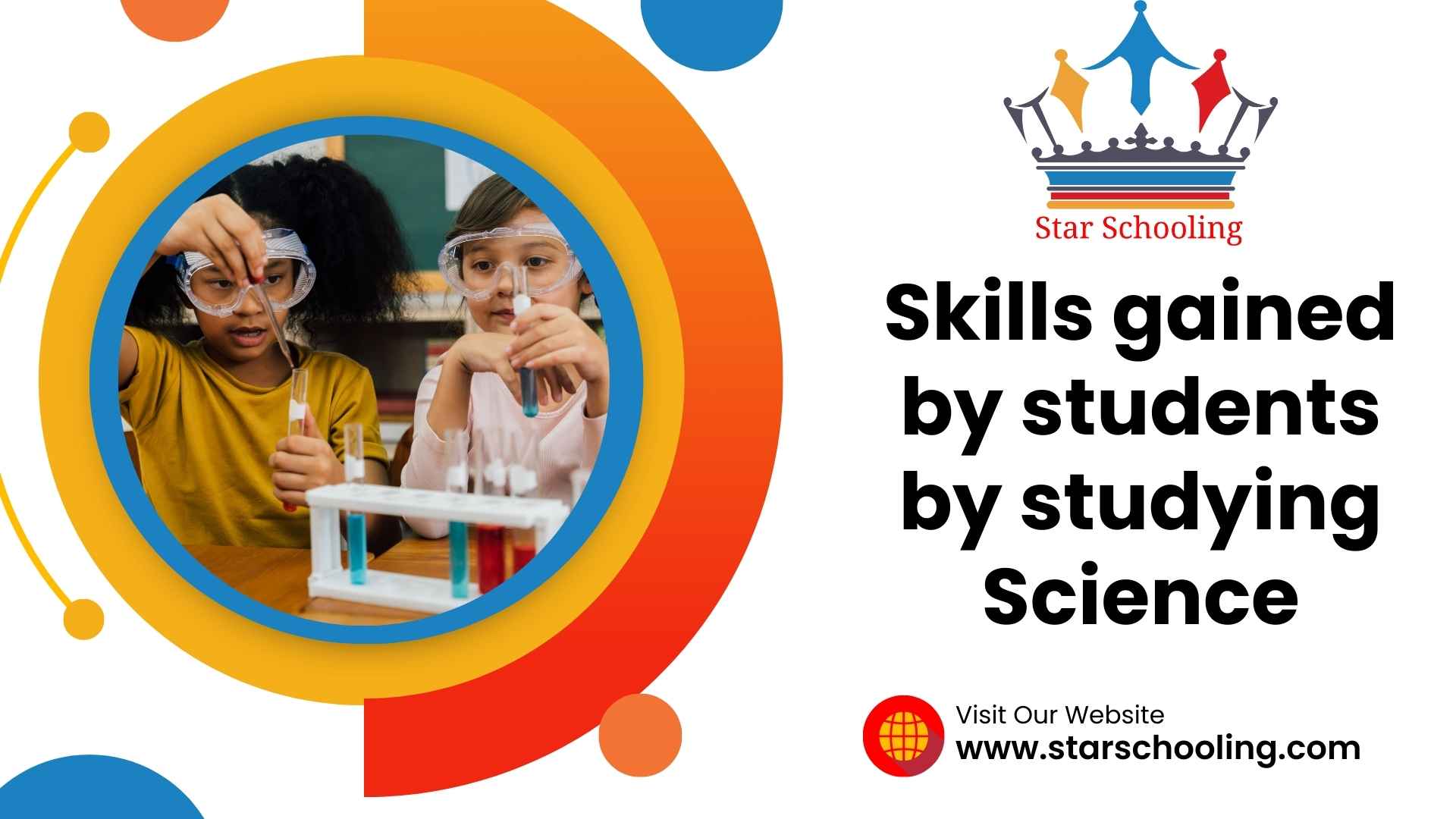Blog Details
Skills gained by students by studying Science
Category:Education Tips at Best Boarding Schools in India

Science education allows students to understand how and why things work. It teaches children about the world around them, including topics like human anatomy and transportation. Science reveals the mechanisms and reasons behind complex systems. A complete guide on the importance of science education in schools is available from Star Schooling education consultancy.
Why is Science Education important in the schools?
The presence of technology and science in our daily lives is evident. Public policy decisions rely on scientific evidence, and the natural world demonstrates countless scientific concepts. To thrive in a technologically advanced society, children must become scientifically literate.
Science is important because it relates to students' lives and helps develop problem-solving and critical thinking skills. These skills are useful for life and help with decision-making and understanding public policy. Teaching these skills through science education prepares students for success in school and beyond.
The Top Boarding Schools in North India believes that teaching the scientific method helps students develop critical thinking, problem-solving, and decision-making skills, which are important in their education and future career.
1) Science education is important in the 21st century.
Science education in Best Boarding Schools in India helps students develop critical thinking, problem-solving, and information literacy skills. By teaching the nature of science and promoting the use of scientific practices, it prepares students for future careers.
2) How Is Science Involved in Students’ Everyday Lives?
This passage emphasizes the pervasive presence of science in various aspects of a student's daily life. It highlights examples such as the school bus, infrastructure, and smartphone as products of scientific advancements in areas like mechanical engineering and computer engineering. Additionally, it mentions that science extends to both natural phenomena and human-made technologies.
How Science helps the students?
1)” Knowledge”
Teaching science helps students understand how things work and why. It explains complex systems like the human body or transportation. This knowledge helps with new concepts, decision-making, and pursuing interests. Science also provides tangible evidence that helps with understanding and retention for children and teenagers.
2) Problem Solving Skills
Studying science can develop scepticism, intrigue, and inspire students to pursue new scientific interests. It also teaches logical thinking and problem-solving skills, enabling individuals to solve real-world problems using scientific knowledge.
3) Technology
Science teaches children the fundamentals of device functioning, which can inspire them to invent new technology in the future. Understanding how tools like telescopes and microscopes work enables effective examination and differentiation of objects. Moreover, this basic knowledge helps in troubleshooting minor electronic issues at home.
4) Boosts Critical thinking
The scientific method is a logical approach to studying new topics that helps students connect theory and practice. It involves starting with an idea, conducting experiments using scientific techniques, and analysing the results. Understanding the connection between theories and research has advantages in all areas of life. Science is like fuel for young minds, helping them think critically and make informed decisions. Problem-solving and critical thinking are important skills taught in schools that lead to success in life.
5) Holds the key to future
"The concept of 'the present is the key to the future' suggests that understanding the present helps us prepare for and focus on the future. Educating future generations in science is important for their preparedness. For instance, interventions based on science at schools have contributed to a decrease in smoking rates."
6) Importance of Science in early education
Children develop an opinion about science early on in school. If it's negative, it can be difficult to keep them interested in science as they get older. Engaging young students with exciting material and experiences motivates them to continue learning and pursuing science throughout their education.
Published on: Mar 18, 2024